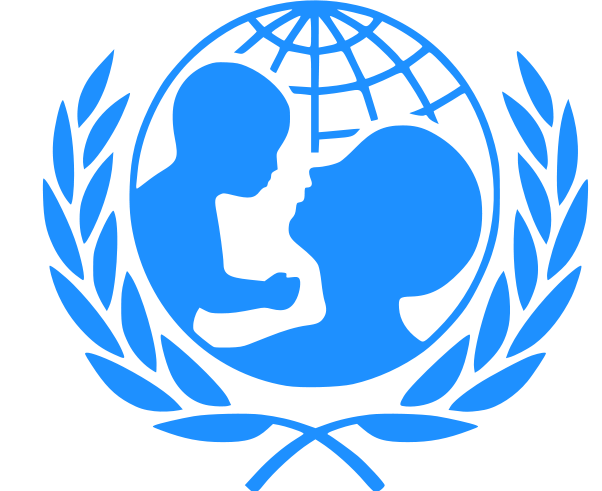Need to bring back Poshan Abhiyan at the level it was in pre-COVID times: UNICEF
He said programmes under Poshan Abhiyan such as the functioning of Integrated Child Development Services (ICDS), take-home rations and giving pregnant women and children iron folic tablets to prevent anaemia need to be fully implemented again. "We need Poshan Abhiyan back at the same level and beyond than where we were in January (pre-COVID times).

- Country:
- India
There is a need to bring back the national nutrition mission at the same level it was before the coronavirus outbreak, said chief of UNICEF India (Nutrition) Arjan de Wagt. He said programmes under Poshan Abhiyan such as the functioning of Integrated Child Development Services (ICDS), take-home rations and giving pregnant women and children iron folic tablets to prevent anaemia need to be fully implemented again.
"We need Poshan Abhiyan back at the same level and beyond than where we were in January (pre-COVID times). It does not require any different response. We need the same programmes... we need ICDS functioning, take-home rations functioning, pregnant women and children receiving iron folic tablets to prevent anaemia," Wagt told PTI. He stressed that all routine services need to get back on track and not any new intervention.
According to Wagt, in many cases, there is a need to adjust and look for alternative ways of implementation of different programmes related to nutrition because of the pandemic. "In many cases, we need to adjust. For example, since schools are closed, children need to get the food they used to get in schools. So, we need to look for other ways like take-home rations delivered door-to-door.
"There is a need to go to every door that needs it and not a smaller number of people. Iron folic tablets, which are distributed to adolescent girls in schools, can be given to those who need it through communities," he said. There are three pathways on how coronavirus affects nutrition in India. The first is increasing poverty with people losing jobs. Poverty leads to food insecurity and different eating behaviours. The second is how services were affected and the third one is how leadership was affected in these times in terms of focus on nutrition, Wagt said.
He said in the past, Poshan Pakwada and Poshan Maah had a key component of bringing a large number of people together in communities, mass gatherings to educate people about good nutrition, but as seen in the last four weeks there were no such gatherings due to the coronavirus infection. "So, more mass media, home visits, home counselling are needed," he said.
Poshan Abhiyan was launched by the Centre in 2018 to reduce low birth weight, stunting and undernutrition and anaemia among children, adolescent girls and women. Under the mission, Poshan Maah is observed every September. During Poshan Maah, initiatives are taken to bring a behavioural change towards issues related to maternal, infant and young childcare and feeding practices. Poshan Pakwada is a 14-day event held every year to spread awareness on the importance of nutrition.
According to the National Family Health Survey-4 (NFHS-4), 38.4 per cent children under five years of age are stunted (low height-for-age) and 21 per cent wasted (low weight-for-height). About the impact of missing out on midday meals given to children in schools due to coronavirus, Wagt said many children go to school as they know they will get food there and in many cases, it is one of the most nutritious meals a child gets.
"During the lockdown, there have been efforts to bring that food to the doorstep of children. But I am not sure how effective that has been," he said. Asserting that families need to be made adequately aware of the importance of nutrition, Wagt said, "For many people, food is for hunger but people don't realise that eating is to nourish the body and mind, to build the immune system." "I have always been saying that all these government programmes of feeding and nutrition are crucial but for me, it also emphasizes that nutrition is too important to leave it to government.
"For me, nutrition is even too personal to leave it to government and it needs to be communities families parents that are also feeding children and at the end of the day the plate in the home is provided by the family," he said. On the importance of breastfeeding even in times of coronavirus pandemic, Wagt said breast milk is the first vaccination provided to a child and the risk of not breastfeeding or poor breastfeeding is much higher than the risk of transmitting COVID to the baby.
"There are special proteins, special immune factors in the breast milk that builds the immune system of the baby in the first few days and then in the first six months. So breastfeeding is very essential but people have been afraid of spreading the virus to other people and are asking if they should continue breastfeeding," he advised. There is very little evidence that breastfeeding can transmit the virus. Also, the risk of coronavirus among children doesn't seem to be that high as the risk of not breastfeeding. Breastfeeding must continue even in times of COVID with proper precautions, Wagt stressed.
(This story has not been edited by Devdiscourse staff and is auto-generated from a syndicated feed.)
- READ MORE ON:
- Arjan de Wagt
- Wagt
- Poshan Maah
- Poshan Abhiyan
- Poshan Pakwada










